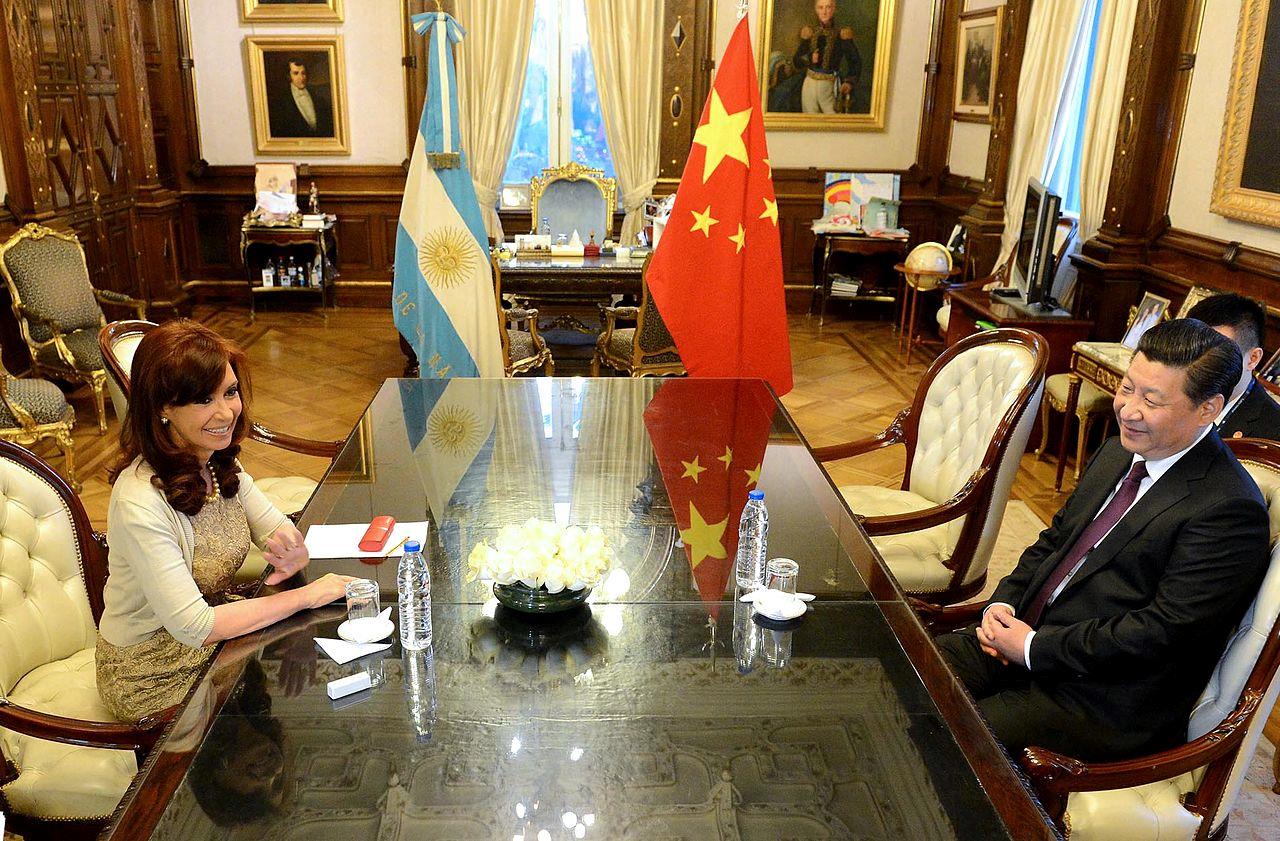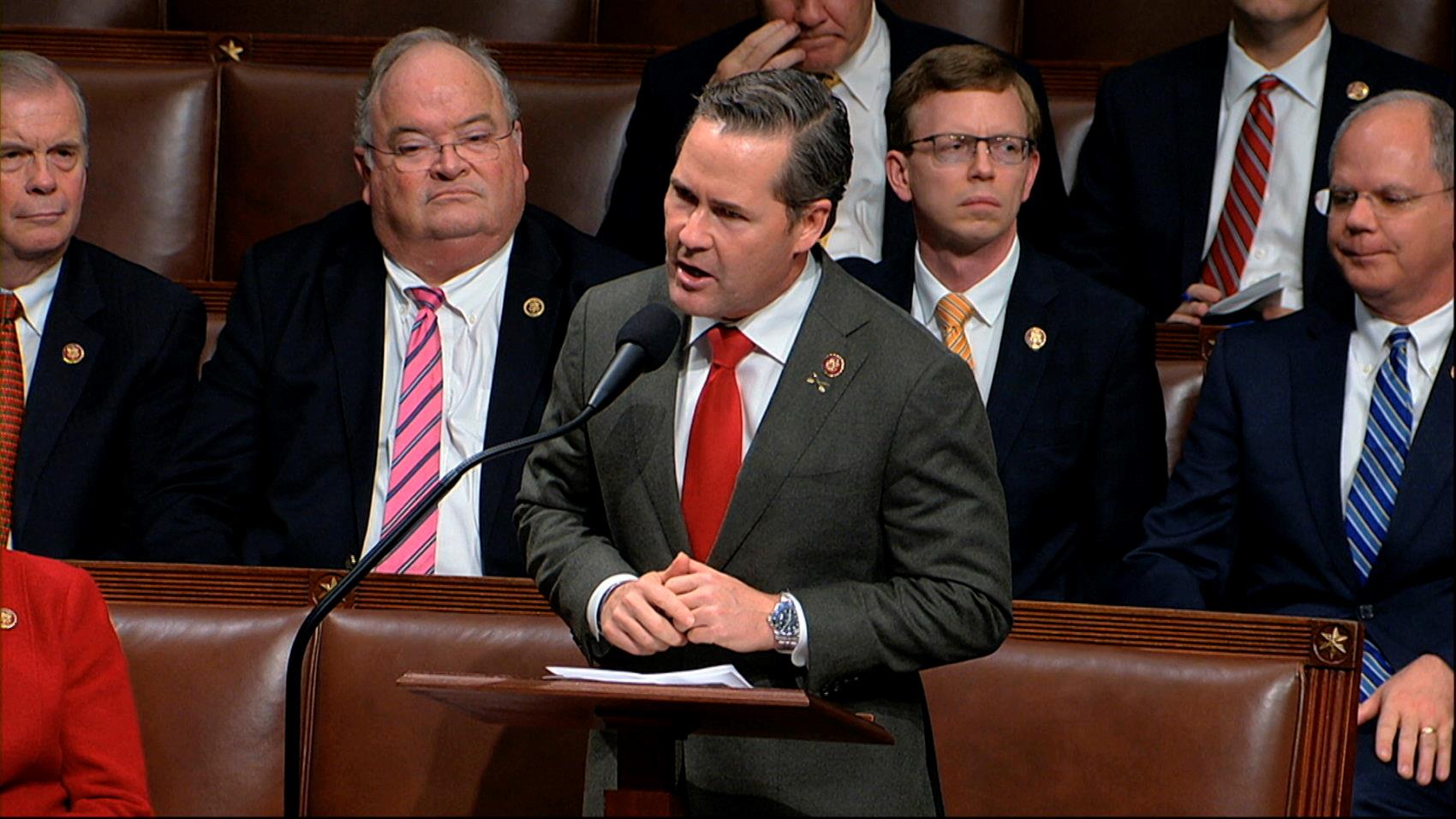(MENAFN- Asia Times)
Argentine President Alberto Fernandez added another event to a highly politicized Winter olympics when he met in Beijing last week with Chinese President Xi Jinping and agreed to join China's Belt and Road Initiative.
Argentina becomes the 20th of 33 countries in Latin America and the Caribbean to sign up for the Belt & Road, putting an official seal on what was already an extensive and growing economic relationship.
In addition to expanding trade and investment opportunities with China, joining the Belt & Road should make it easier for Argentina to obtain funding from the China-led Asian Infrastructure Investment Bank (AIIB) and the BRICS New Development Bank.
And this should reduce its dependence on the International Monetary Fund (IMF), a top priority for Fernandez.
Prior to the February 6 meeting in Beijing, Fernandez dropped by Moscow, where he told Russian President Vladimir Putin:“I am determined that Argentina has to stop being dependent on the Fund and the United States, and here I believe that Russia has an important place.”
Coming in the midst of the Ukraine crisis, this was the first of two diplomatic slaps in the face of the US government, which is boycotting the games in Beijing. Fernandez attended the opening ceremony.
The UK had a slap of its own when China took the opportunity to support Argentina's position on the Falkland Islands (Islas Malvinas). That is another story, but it does underline the Global South versus Imperial North nature of the dispute.
This year marks the 50th anniversary of the establishment of diplomatic relations between Argentina and China. More recently, relations between the two countries have advanced considerably during and after the presidency of leftist Cristina Fernandez de Kirchner, who led Argentina from 2007 to 2015.

Cristina Fernandez de Kirchner and Xi Jinping. Photo: Agencies
She had difficult relations with the US, which she blamed for Argentina's sovereign debt default in 2014, and she put relations with China on the course they are on today, as is demonstrated by this statement from the Chinese Ministry of Foreign Affairs:
Argentina has the reputation of being an economic basket case, but it has a fairly sophisticated economy and now runs a trade surplus, with exports exceeding imports by 23% in 2021.
Exports were led by agricultural products (35.5%), industrial manufacturing (29.1%) and primary goods (26.9%). Imports were led by intermediate products (36.9%), capital goods (18.8%) and parts and accessories for capital goods (18.1%), according to statistics from Trading Economics.
Argentina's top three export markets are Brazil, China and the US. Its top three sources of imports are China, Brazil and the US. Total trade with China has expanded by several times in the past 20 years and is now nearly double the total trade with the US.
Argentina is a major exporter of soybeans and soybean-derived products, corn and beef, competing with the United States in China and other markets. Like Brazil, it offers China an alternative to dependence on the US in the middle of a long-term trade dispute and increasingly acrimonious rivalry.
From China, Argentina imports telecom and other electronic equipment, machinery including nuclear reactors, vehicles, other manufactured products and chemicals. Its imports from the US include machinery, fuel, aircraft and plastics. There is no obvious conflict here, but imports from China are growing more rapidly than those from the US and will probably continue to do so.
Shortly before the visit of President Fernandez to Beijing, Argentine nuclear power plant operator Nucleoelectrica Argentina and China National Nuclear Corp (CNNC) signed an engineering, procurement and construction contract under which CNNC will build the Atucha III nuclear power plant near Buenos Aires.
This project, which was first discussed in 2015 when Cristina Fernandez was president, will use Chinese nuclear technology and be financed primarily by Chinese banks. The details have not been announced, but the value of the contract is estimated to be as much as US$8 billion.
Atucha III will be Argentina's fourth and largest nuclear power plant. Atucha I and Atucha II were built using German technology. The Embalse nuclear power plant, located in the province of Cordoba to the west of Buenos Aires, was built using Canadian technology.
The Chinese have also invested in and financed solar, wind and hydroelectric power projects in Argentina in recent years. And in January this year it was announced that China Electric Power Equipment and Technology (CET) will upgrade and expand the Buenos Aires power grid in a deal valued at $1.1 billion.
Also in January, China's Zijin Mining announced it had completed the purchase of Neo Lithium of Canada and its 3Q lithium brine project in Argentina. According to the press release, the project“is one of the largest and highest-grade projects of its kind in the world. The property is the fifth-largest lithium brine project in the world, and ranks among the top three in terms of grades.”
The Canadian government approved the deal without a security review and“the project has been approved by the Environmental and Mining Authority in Catamarca Province, Argentina.”
Canadian conservatives and American China-bashers were outraged. Florida Congressman Michael Waltz, a Republican member of the House Committee on Science, Space and Technology, said :

Michael Waltz speaks as the House of Representatives debates the articles of impeachment against President Donald Trump at the Capitol in Washington on December 18, 2019. Photo: House Television
As I wrote last month in Belt & Road encircles Latin America and the Caribbean China has also built a radio astronomy and satellite tracking station in Argentina that the US fears has more than a scientific purpose.
In addition to that, Telecom Argentina began to roll out 5G telecom services last year in partnership with Huawei and Nokia.
The Americans didn't like that either. But what more attractive alternative to any Chinese project in Argentina have they offered?
On the other hand, the United States is closely identified with the IMF, which is not popular in Argentina. Here's how Fernandez explained it to Putin:
Not a word about financial irresponsibility and the workings of Argentine democracy, but that is not the point.
The final sentence of Fernandez's comment refers to Mauricio Macri, the center-right businessman and politician who succeeded Cristina Fernandez de Kirchner in the presidency in 2015 and served until 2019.

Christine Lagarde, then managing director of the International Monetary Fund , meets with Argentine President Mauricio Macri on the sidelines of the Group of Seven Summit in La Malbaie, Canada, in 2018. Photo: IMF
Macri repaired relations with the US and liberalized the economy. And when a severe drought crippled the agricultural sector, inflation ran out of control and the government could not meet its obligations, he turned to the IMF.
That led to an even worse disaster.
On December 22, 2021, the IMF published the following press release and staff report: Argentina: Ex-Post Evaluation of Exceptional Access Under the 2018 Stand-By Arrangement. Its summary:
The IMF defines“stand-by arrangement” as follows:
Unfortunately, the stand-by arrangement required fiscal and monetary austerity, which caused a recession. Argentina's GDP dropped by 2.6% in 2018 and by another 2.1% in 2019. Then, with the onset of the pandemic, it plummeted 9.9% in 2020. Poverty increased by an estimated 50% and capital flowed out of the country.
This result was so bad that the IMF criticized its own program and when it agreed to restructure Argentina's debt, which now amounts to $44.5 billion, this was done without insistence on further austerity.
On January 28, Fernandez released a video in which he told the nation:
This sounds pretty good, but the agreement must be approved by the board of directors of the IMF and the Argentine Congress. Opposition to the deal erupted among leftist politicians and in the streets of Buenos Aires.
In this situation, Fernandez headed to Moscow and Beijing to broaden his options, stirring up opposition to his leadership on the right as well.
But default has been averted, the IMF has abandoned“tough love” for what could be called constructive sympathy, and currency swaps between the Argentine and Chinese central banks have added to Argentina's foreign currency reserves.
This should stabilize the economic situation and allow the Chinese to continue expanding their role in Argentina's economy. They are not wasting any time.
On January 19, agreements aimed at upgrading Argentina's railway system were signed by the Minister of Transport, the president of the national railway company and representatives of engineering contractor China Railway International Group and rolling stock maker CRRC Qindao Sifang.
Scott Foster is an analyst with LightStream Research, Tokyo. Follow him on Twitter: @ScottFo83517667
MENAFN15022022000159011032ID1103697370